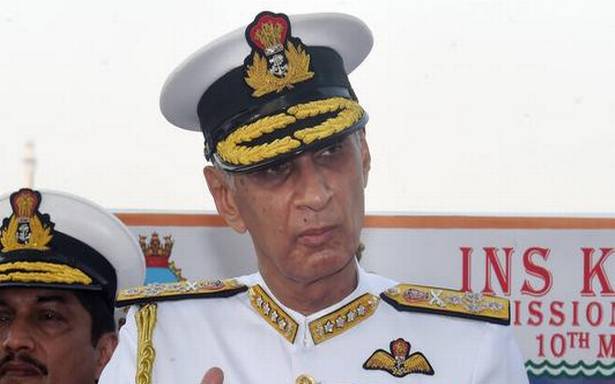Tactical ingenuity, adroit planning proved crucial in shaping land battle, says Navy Chief
Stating that the maritime facets of the 1971 Indo-Pak war marked the Navy’s “coming of age” and established its credentials as a force to reckon with, Navy Chief Admiral Karambir Singh on Monday said the “tactical ingenuity in employment of available combat power and adroit planning proved crucial in supporting and shaping the land battle”.
Gaitri I Kumar, High Commissioner to the United Kingdom, said India’s role in the Liberation war of Bangladesh was “just a natural response of a close neighbour to grave human rights violations” and is reflective of the values of India and commitment to safeguarding of the “similar rights of our brothers and sisters in the immediate neighbourhood”.
“During the 1971 war, the Navy executed an array of offensive and defensive operations on both our sea boards effectively neutralising the adversary’s ability to use the seas for combat, sustenance, replenishment and evacuation,” Adm. Singh said at a webinar on “1971 War — Indian Naval attack on Karachi” by The Nehru Centre, London.
Adm. Singh said the war was most significant that it led to the birth of a new nation, Bangladesh, a seminal geopolitical event. Though half a century has passed, the core tenets of planning, decisive action, operational synchronisation and out of the box thinking epitomised by the Naval operations hold true even today and carry valuable lessons for the future, he said.
“Indian Navy considers the operations conducted in 1971 historically and militarily significant and for this reason commemorates the missile attacks of December 4 on Karachi as Navy Day.”
The Navy missile boats had carried out attacks on the Karachi port under Operation Trident on December 3 and 4 night and Operation Python on December 8 and 9 night.
On the non-military achievements, Ms. Kumar said the liberation of East Pakistan heralded the victory of democratic forces, the birth of Bangladesh which is today a thriving and flourishing democracy is the “most significant outcome of those operations in 1971.”
“Given our common history, cultural linkages and close people to people contacts and relationships it was but natural that India should respond as it did to protect human rights, uphold justice and respect for the electoral process,” she said. “The victory was also the triumph of values such as respect for language, cultural identity, a belief in powerful coexistence, all deeply cherished in India and enshrined in the Constitution.”
It is also the reinstitution of the primacy of the Bengali language and cultural identity to its rightful place in Bangladesh.
“It was simply India’s honest and no strings attached support for our friendly neighbour to achieve its legitimate aspiration,” Ms. Kumar said. At the same time, it was the joint effort of the armed forces coupled with the bravery of the Mukti Bahini and the courage of the Bangladeshi people, she said. “It is this spirit which triumphed.”
Source: Read Full Article

